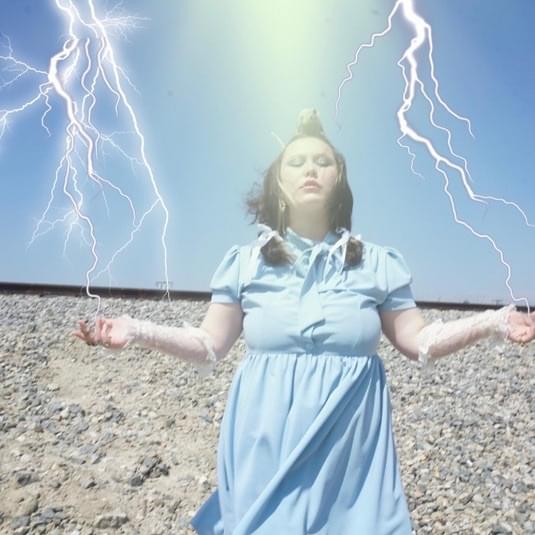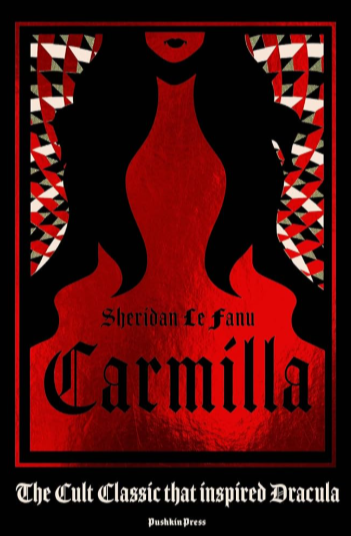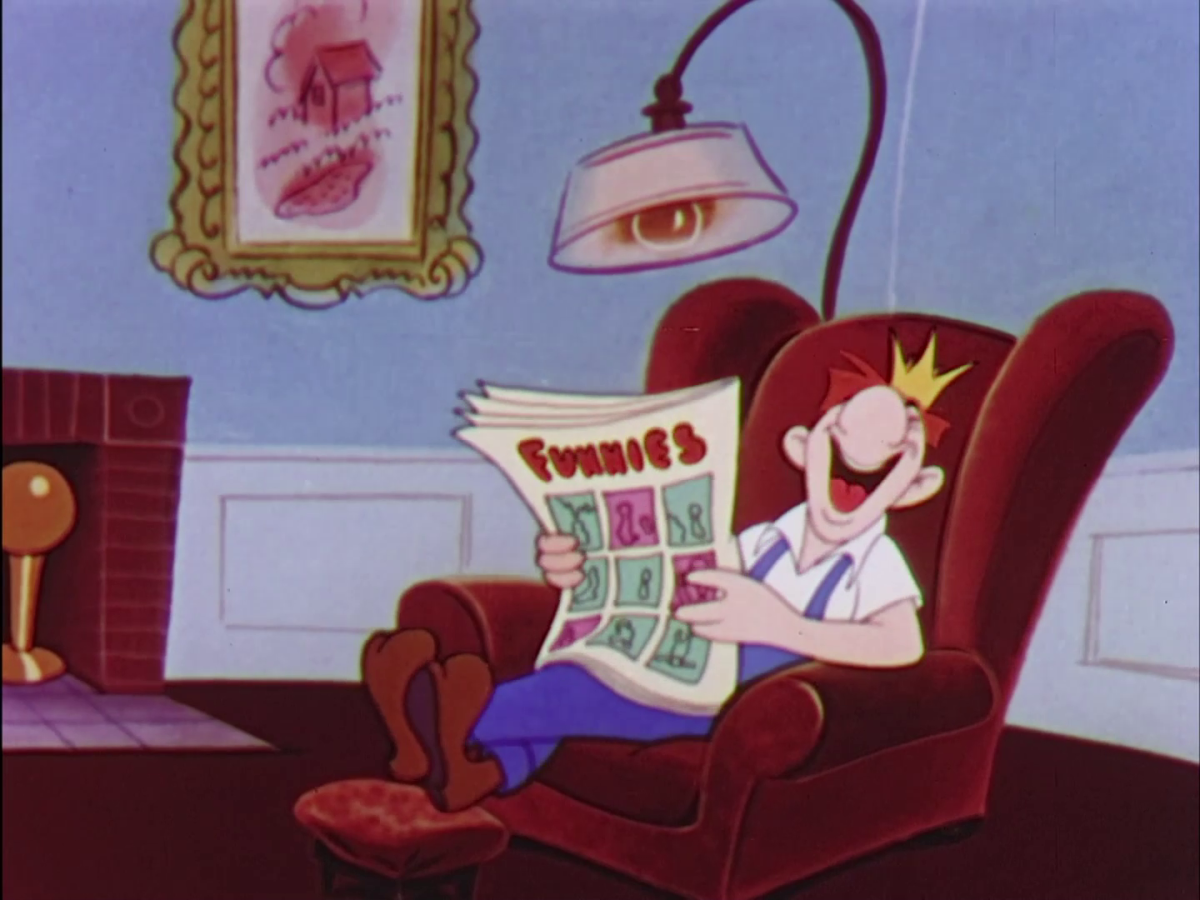
On March 14th, 2025, right in the middle of Women’s History Month, Penelope Scott released her sixth official album, Water Dogs, which focused on the hypocrisy and traumas of womanhood. Of its eight songs, five contain the word “girl” in the title, painting the picture that this album is inarguably about the female experience. Discussed throughout the album are topics such as the complexity of female friendships, manipulation, being a creator on the internet, self-loathing, and remaining optimistic despite hardship. It is a phenomenal documentation of the emotions and situations often experienced by femme or formerly-femme people, that combines aspects of hyperpop, folk, and video game music into a beautifully unique record.
Girl’s Always Right: This album opens with the tale of an abusive relationship. The singer keeps getting into fights in which she can not tell whether she is in the wrong or not, shown by the lyric, “A girl’s always right, a girl’s always wrong.” She decides that it doesn’t really matter who’s right; she feels trapped and hysterical and wishes things could be different. This song compares women to dogs (later contrasted with Pisces Tears comparing men to dogs), specifically pound dogs. The singer wishes she could free them, though doing so might put them in more danger, out in the world alone. The lyrics, “We could just ask the other animals if they thought there was anything wrong,” and, “Animal to animal, are we okay?” further this idea that humans, despite everything, are still just animals. Interestingly, the second verse of this song contains allusions to Adam and Eve, a story where the woman is seen as at fault for ruining the peace.
Naiad Girl: This song is about the forfeiting of a woman’s identity after entering a relationship with a selfish or simple-minded man. The song contains symbolism of Stockholm Syndrome, or of someone loving those who have hurt them, having emotions conflict with the circumstances. For example: a fly loving a spider or soldiers loving the country that sent them to war. On one hand, she seems to argue that if these are just coping mechanisms, are they really so bad? It is not good, of course, but do these people really need to seek help? But on the other hand, she compares these trapped subjects to Naiads, Mermaids, and Selkies– mythological aquatic creatures which are typically female– being trapped by men. As these creatures are taken from their waters, Scott sings of how she misses their presence. These people do deserve to be freed.
Spirit: To best understand this song, you must first understand Penelope Scott’s previous work. Her albums have typically focused on leftist ideas and societal issues. Her most popular album, Public Void, released in mid-2020, has songs criticizing the United States’ healthcare system (American Healthcare (Glitzy)) and Elon Musk (Rät). Her single, Born2Run, released in 2021, criticizes Congress’s lack of action against gun violence. She is known to be pessimistic about the state of the world. However, this album, despite its coverage of many upsetting topics, includes the song Spirit, an optimistic take on aging and on finding something to live for. It shows how, through finding people she cares about, she has been able to grow out of her nihilistic younger self. She references how she is putting her high school self behind her and is finding solace in aging and growth.
There are many amazing lyrics throughout this five-minute long song, but some highlights are “So maybe you don’t care about being cool; Maybe that’s just something you leave back at school; Back with all the backpacks slung on one shoulder; Where the hottest thing to do is just to never get older.” The double meaning of the last line conveys the thesis of the song. The younger self held both a fear of aging and suicidal ideation, but as time has gone on, she was able to lessen both. The chorus is also a summarization of the thesis: “Now the zeitgeist wants a nihilist and I’m a flop; ‘Cause death isn’t a threat, it’s the cherry on top; Maybe I just ended up a little too goth; Maybe my death drive gave up and got lost.” In this, “too goth” does not mean suicidal or edgy like it may be connotated as, but instead means embracing all life has to offer, with death viewed as just a small piece at the end that adds to the experience.
Pisces Tears: This song talks of the realities a young woman must face after growing into her adult self. It begins with the line, “I’m pretty like my mother now,” showing that the speaker feels she has reached a significant level of physical maturity and adulthood. The later lyric “I’m pretty like an animal,” shows a contrast between the idea of being beautiful like a complex person versus being objectified. The song also contrasts relationships between women and relationships between men and women. Women supposedly hold each other’s hands at recess and make the world “all not so bad”. The singer talks of how women, who had previously been housewives confined to the kitchen, represent every friend she’s ever had.
Men, however, are shown as dogs, taking the singer on an endless road trip with no real goal. The singer finally makes the connection that these “dogs” she’s putting so much trust in are not worth all of her effort and sacrifice. Scott also discusses her career and how she believes she is doing a good job, “cry{ing] for a living,” which shows how, despite her supposed growth in Spirit, she still has nihilistic tendencies.
Charlotte’s Hymn: The titular Charlotte in this song is Charlotte Haze, the mother in the book Lolita by Vladimir Nabokov, whose husband only marries her to pursue a relationship with her twelve-year-old daughter. The song shows the dichotomy between Charlotte’s heartbreak at being too old to be loved by her husband and her maternal rage at him for pursuing her underage daughter. A few lyrics showcasing these themes are “The look in my eyes, my creases and lines/The flesh of a woman, a mother divine/The hang of your head, hanged for your crimes/The rage of a mother, the gruesome divine” and “I’ll never forgive that respectable man.” As in Spirit, aging here is described as “the gruesome divine.”
This song is an interesting take on the character of Charlotte, as Scott paints a version whose heartbreak and jealousy do not interfere with her maternal instincts, and instead all combine into a mass sum of rage at her depraved husband. Throughout the song, she calls upon and pleads with God to strike down her husband and save us all, somewhat fulfilling its description as a hymn. However, she never praises God and only asks for His help.
Girl World: This song focuses on the complexity of female friendship, with the title likely a reference to the film Mean Girls. It begins with the singer expressing concern over a girl driving on a motorcycle with her boyfriend while dressed in a way that may be seen as overtly sexual. When she drives away, the singer realizes that she is “just half jealous and half a good friend,” being both rightfully concerned for but also envious of the other woman. During the song’s chorus, she “God bless[es]” archetypes of loud, outgoing girls who put themselves in danger to have a good time. She loves these women for who they are, but remains jealous and worried for them.
The singer feels that she is losing the competition of being a girl, though she knows it is not the other women’s fault. She explains that this is both a hard game to quit once you know how to win (showing the outgoing woman’s perspective who wishes to keep her status though it may end up harming her) and that it is a hard game to win once you know how to quit (showing the perspective of someone who wishes to escape this feminine competition, but knows that will mean losing). The third verse describes the two women as friends who love each other despite how the world pits them against each other for male attention, with the fantastic complex sentiments, “And if anybody hurt you, I put them in the ground/Why do they like you better than me?/All I can say is that I love you beyond it/My love makes that question a grain of sand in the sea.” This song predominantly focuses on a main idea present throughout the album that female friendship outweighs the female rivalry brought on by a male-dominated society.
Water Girl: This song is likely about trying to deal with intense self-loathing, seemingly through dissociation, sexual intercourse, and light social commitments. The singer is in college, but hates it there. She feels better elsewhere, in a place where people are kind to her– implied to be in a lover’s bed. As the song goes on, she expresses more and more self-hatred, believing herself to be a horrible person. Lines like “I don’t care ‘cause I love lying” and “I will learn to live with it” convey a sense of acceptance and a lack of desire to get better. She tries to be numb but is unable to hide her self-disgust. The end of the song has certain lines showing how she is pretending to be okay, participating in social activities, and fulfilling commitments, leading people not to minding her mental illness. These lines reference real products and describe her broken heart and mind: “Nobody minds your fly trap mind/When you’re holding on Capri-Sun/Nobody minds your twisted heart/When you show up with a Gatorade.” She believes that she is tolerable only when she can be valuable to others.
A Girl Alone (feat. Honey Morello): This short song, closing the album, speaks of the singer’s fear of being alone. She feels that she will regress back to her old self if she is left to her own devices. Scott made her most depressing and well-known albums during the Coronavirus pandemic, and seems to believe that she will begin making that type of pessimistic music again if she is ever in a similar state of loneliness. The song deprecates this sad, older music (“God help us, I might start to write”), showing that she likely does not enjoy making that type of art. Three separate times during this song, she compares herself to a few ideas before stating that she is a girl (“I’m a door. I’m a vessel. I’m a nightmare. I am a girl,” in the second verse for example), as though these metaphors are representative of aspects of womanhood.
There is actually no feature in this song; Honey Morello was a previous name Scott posted music under. She has a feature from herself on a song about loneliness.
Water Dogs has been one of the most emotional albums I’ve listened to, I cannot recommend it enough. It’s neither fully optimistic nor nihilistic, but it expresses the complexity of emotions and events experienced by femme people today. It is a masterpiece made for the decade, but one that I believe will become a timeless classic.













